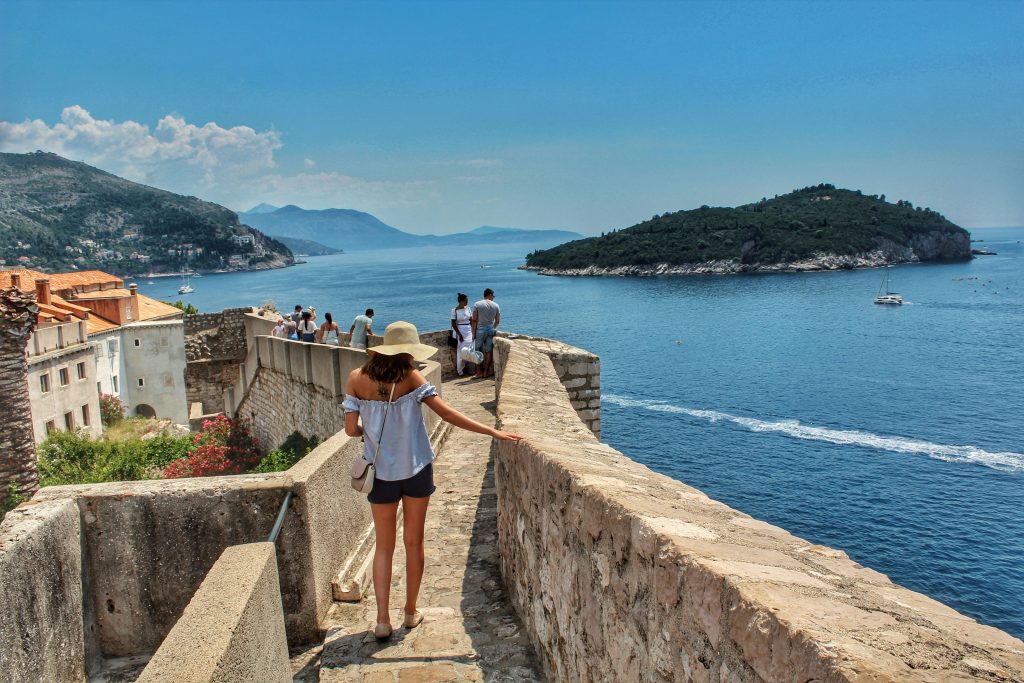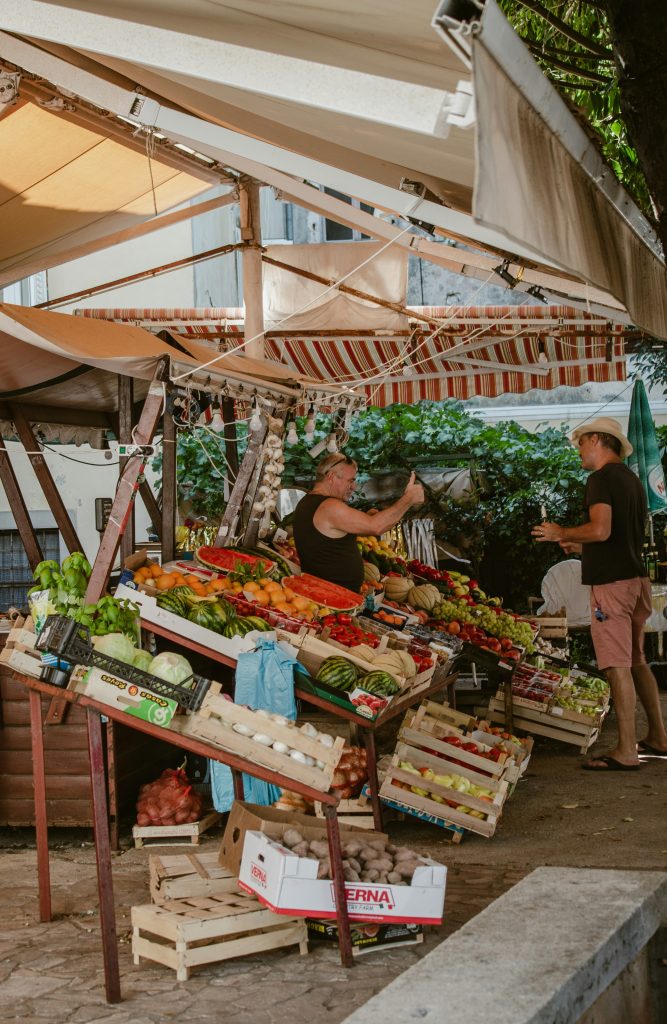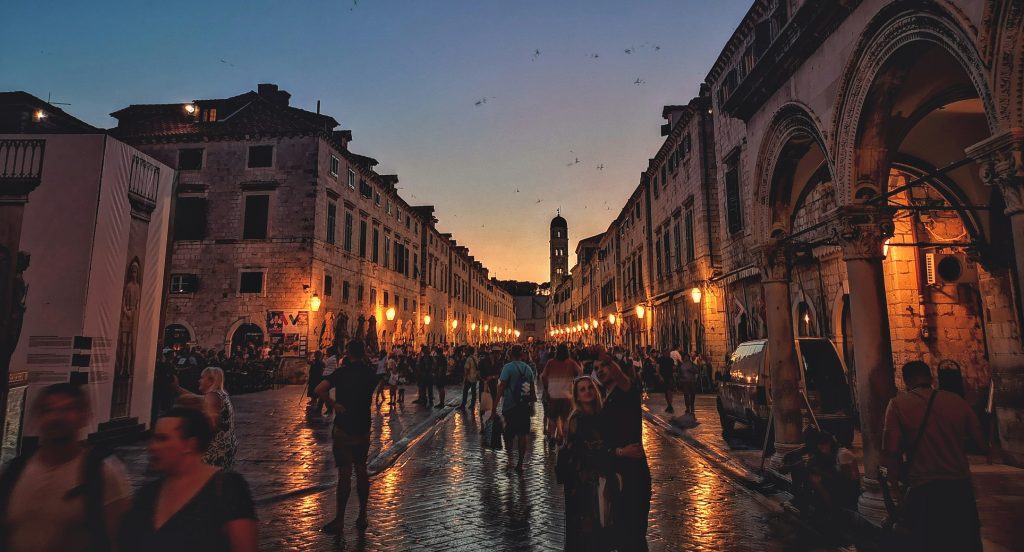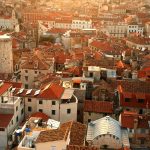June the 27th, 2024 – The Balearic islands of Spain recently saw massive anti-tourism protests as the local population expressed their indignation for mass tourism, could similar Croatian anti-tourism protests be looming?
As Poslovni Dnevnik/Ana Blaskovic writes, thousands of dissatisfied people from the Balearic islands recently protested against mass tourism. Activists and ecologists in the Canary Islands also warned that the local population is being forced to live in their cars, while large tourist operators are “swallowing up” everything. In addition, anti-tourist graffiti such as “My misery = your paradise” has been appearing on the walls of buildings.
As of April this year in Venice, one of the most visited cities in the world, entrance to the old town has come with a cost of five euros in order to at least to some extent stop the endless flow of countless tourists. What is Croatia doing about uncontrolled mass tourism? Back in April, the establishment of the Centre for Sustainable Tourism was initiated, but its implementation is still in its infancy.
This centre will enable the expansion of cooperation between the World Tourism Organisation (UN Tourism) and the appropriate Croatian ministry by establishing a research and development centre for sustainable tourism. The centre will be established as an independent legal entity in cooperation with the academic community, but exclusively public institutions.
Last year’s revenues from Croatian tourism amounted to an enormous 14.6 billion euros, almost one and a half billion more than the year before. While the figures are beyond impressive, they’re almost entirely thanks to harmful mass tourism. Thus far, Croatian experts have expressed their support for the establishment of the centre in principle, but they’ve clearly reserved more detailed assessments for a later time after concrete steps have actually been taken. They are divided on whether a scenario of large-scale Croatian anti-tourism protests by disgruntled locals await us, as has been the case in many other popular destinations.
“I don’t think croatian anti-tourism protests will end up happening…”

“I don’t think Croatian anti-tourism protests will end up happening. I believe that Croatian society has lost its protest character, and on the other hand, the locals mostly live from tourism. Why would they saw the branch they’re sitting on off? What’s the alternative for the local population when tourism contributes about 25 percent to the national GDP? In some coastal and island towns, where the concentration of tourists is even higher, almost every single family earns additional tourism income, and many make their entire living from tourism.
Certain cities that have actively joined the fight against excessive tourism, such as Venice, Barcelona, Palma de Mallorca or Amsterdam, have more tourist traffic than the whole of Croatia. At the same time, their season lasts the whole year, which is mostly not the case here,” said Marko Perić, dean of the Faculty of Tourism and Hospitality Management.
“Mass tourism is already happening in Croatia because we have a large number of guests with lower paying power,” believes Eduard Andrić, president of the Croatian Tourism and Services Union (STUH). “Sustainable tourism plans are mostly only on paper. We can single out some destinations in Istria that are in a position to provide quality tourism, but they’re rare,” he said.
Veljko Ostojić, director of the Croatian Tourism Association, believes that Croatia is country where the topic of sustainable tourism is “on the air” every day, especially after the adoption of the law on tourism and the awareness of “overbooking”. He believes that Croatian anti-tourism protests are not the solution.
the true cost of sustainable tourism

“The implementing acts that should accompany the law on tourism should be the operational and concrete beginning of a series of activities to stop the unwanted and insufficiently professionally planned development of certain destinations. Such issues resulted mostly in the construction of properties being used solely for short-term tourist rentals,” said Ostojić.
However, Croatia was created as a mass tourism destination, notes the director of the Tourism Institute, Damir Krešić. He added that now the country has to gradually transform itself and lean much more towards tourism with high added value. ‘
“The focus of the public shouldn’t be on the number of arrivals, but on the satisfaction of those tourists. Our problem is that sustainable tourism is very expensive. Until sustainable measures are implemented in practice, it will take some time. This is a problem not only of the negative attitude of the local population, but also of the infrastructure. At some point, we’re going to have to metaphorically remove that mass tourism plaster,” Krešić believes.











